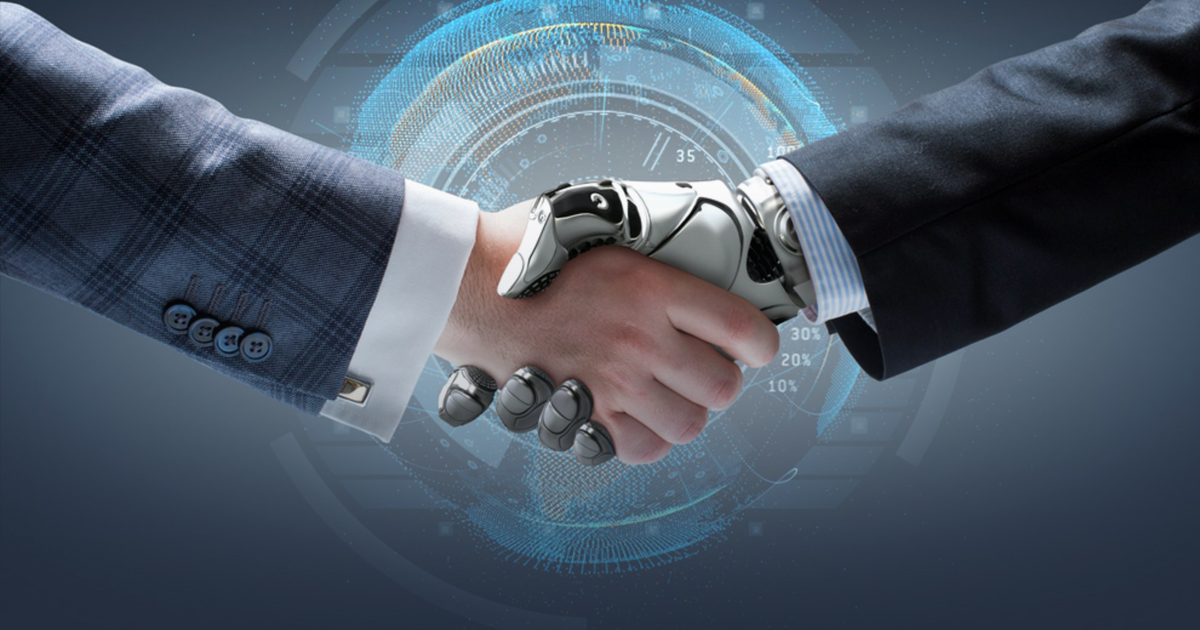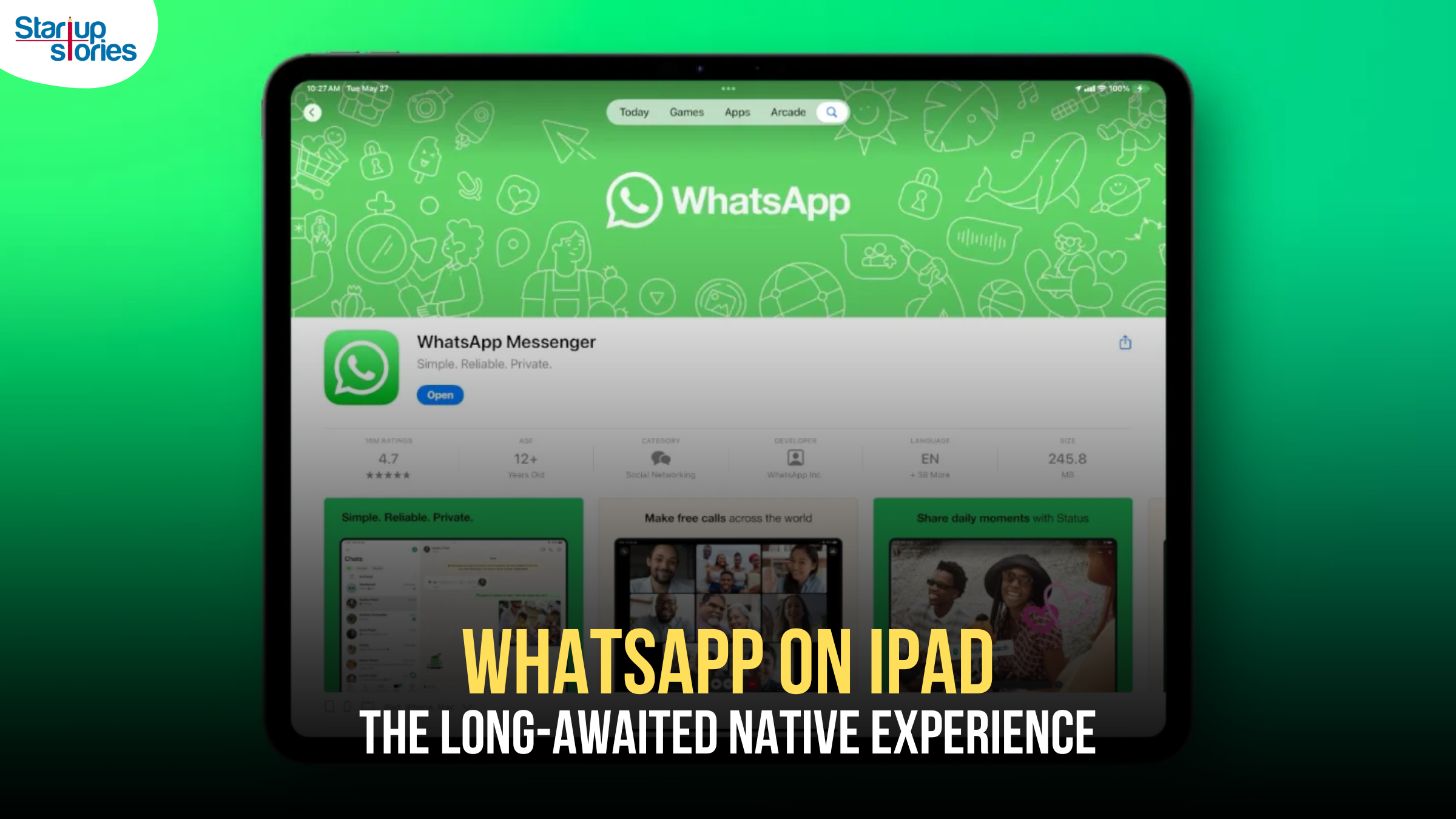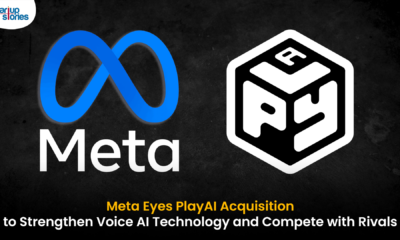Technology
How Artificial Intelligence And Chatbots Will Change Startups

There is a visible shift from the usage of apps to artificial intelligence (AI,) and chatbots. Wait! Do our Chatbots and AI replace our apps? The answer will certainly be a ‘No.’ Chatbots won’t replace our apps, but they will fundamentally transform the way businesses interact with customers by creating smooth and intimate 2-way conversation.
Chatbots supported with AI attempts to replicate human interaction. Simply performing is not sufficient, in addition, they must be likable. Companies like amazon, Apple, Google, IBM, Facebook as well as Microsoft are all snapping up artificial intelligence.

Take Apple, for instance, It has recently snagged VocalIQ, Perceptio, Emotient as well as Faceshift and is looking for more.
We can compare how AI will revolutionize the world to electricity, 100 years ago. Just as electricity transformed many industries over a century, AI will be doing the same to many of the industries like Transportation, Healthcare, Entertainment, and also Manufacturing.

But sadly, like any of those new technologies, Artificial Intelligence and AI-powered startups are also surrounded by many misconceptions. Many startup organizations, investors, venture capitalists are looking to revamp this space and are swooping in to invest in AI-powered startups.
However, much less attention has been paid to the effects of these changes on the startup teams that create that technology. AI increasingly writes down its own codes although software savvy is necessary to get the AI up and running.
Technology
Jio Unveils Cloud PC Service to Bring Affordable Computing to Indian Households

- Jio Platforms has launched JioPC, a cloud-based virtual desktop service that transforms any television connected to a Jio Set Top Box into a fully functional computer.
- Users simply connect a keyboard and mouse to access a desktop-like environment, complete with web browsing, productivity tools, and educational apps—all without needing a physical PC or extra hardware.
- The service is device-agnostic and works with all consumer PC brands, making advanced computing accessible and affordable for millions across India.
JioPC is designed to support a wide range of activities, from professional work to online learning and creative projects. By leveraging Jio’s robust cloud infrastructure, users can run even compute-intensive AI applications directly from their TV screens. The platform also ensures data security and reliability, as all files and settings are safely stored in the cloud, protecting users from data loss even if their device is reset or replaced.
With JioPC, Jio aims to democratize digital access and bring high-performance computing to Indian households at a fraction of the traditional cost. The service supports popular productivity suites like LibreOffice and Microsoft Office online, and Jio is offering a free trial to encourage users to experience the benefits firsthand. This innovative move is set to reshape how people in India work, learn, and connect in the digital age.
Technology
WhatsApp Introduces Ads in Updates Tab, Keeps Chats Ad-Free

Meta has officially begun rolling out ads on WhatsApp, ending over a decade of an ad-free experience since its acquisition in 2014. The advertisements will appear only in the Updates tab, specifically within the Status feature, which lets users share photos, videos, and text updates that disappear after 24 hours—similar to Instagram Stories.
Where Ads Will Appear
- Ads will be visible exclusively in the Status section of the Updates tab, keeping personal and group chats ad-free.
- Businesses can use these ads to encourage users to interact via WhatsApp messaging.
- Meta is also introducing paid channel subscriptions and promoted channels within the Updates tab, allowing users to access premium content and discover new channels more easily.
Privacy and Targeting
Meta has emphasized that private messages, calls, and group chats will remain end-to-end encrypted and free from advertising. Ads will be personalized using limited, non-sensitive data such as location, language, followed channels, and ad interactions. Users can further manage ad preferences if they link WhatsApp to Meta’s Accounts Center.
User and Business Impact
The move marks a major shift for WhatsApp, which has long resisted advertising to preserve a clean messaging experience. While some users have criticized the change, Meta sees this as a significant opportunity to monetize WhatsApp’s 3 billion users and over 200 million businesses on the platform.
In summary, WhatsApp’s new ads will be confined to the Updates tab, ensuring personal messaging remains private and uninterrupted, while opening new monetization avenues for Meta and businesses.
Technology
WhatsApp on iPad: The Long-Awaited Native Experience

After years of anticipation, WhatsApp has officially launched a dedicated app for the iPad, finally giving users a seamless and optimized messaging experience on Apple’s popular tablet. Previously, iPad users had to rely on the web version, which lacked many features and was not designed for the larger screen. Now, with the arrival of WhatsApp for iPad, users can enjoy all the core messaging and calling features in a native, iPadOS-optimized environment.
How to Get Started with WhatsApp on iPad
Setting up WhatsApp on your iPad is straightforward. Simply download the app from the App Store, open it, and scan the displayed QR code using your smartphone’s WhatsApp app to link your account. This process mirrors the setup for WhatsApp Web and Desktop, ensuring your chats, calls, and media stay in sync across devices. The iPad app supports all key features, including individual and group chats, Communities, Channels, and both audio and video calls for up to 32 participants.
Enhanced Features and Multitasking
WhatsApp for iPad is designed to take full advantage of the tablet’s capabilities. It features a two-column layout, with recent chats on the left and active conversations on the right, making multitasking easier and more intuitive. The app supports iPadOS multitasking features such as Split View, Slide Over, and Stage Manager (on compatible models), allowing users to keep WhatsApp open while using other apps. Additionally, it works seamlessly with accessories like the Magic Keyboard and Apple Pencil, boosting productivity and creativity.
Privacy and Security
All messages, calls, and media remain protected with WhatsApp’s industry-leading end-to-end encryption, ensuring privacy and security across all linked devices. The iPad app also includes privacy features like chat lock, giving users peace of mind even if they share their device with others.
Conclusion
The launch of WhatsApp on iPad marks a significant milestone for Meta and its users. With a native, feature-rich app designed for the iPad’s larger screen and advanced multitasking capabilities, WhatsApp is now more accessible and convenient than ever for iPad owners worldwide. This move also signals Meta’s commitment to expanding its ecosystem, with rumors suggesting Instagram may be next in line for a dedicated iPad app. For now, WhatsApp on iPad stands as a welcome upgrade, enhancing how millions stay connected.














Kuwin
November 5, 2025 at 9:47 pm
kuwin sở hữu kho game đa dạng từ slot đến trò chơi bài đổi thưởng, mang đến cho bạn những giây phút giải trí tuyệt vời.
J88
November 7, 2025 at 7:02 am
Đến với J88, bạn sẽ được trải nghiệm dịch vụ cá cược chuyên nghiệp cùng hàng ngàn sự kiện khuyến mãi độc quyền.
MM88
November 7, 2025 at 9:42 pm
Với giao diện mượt mà và ưu đãi hấp dẫn, MM88 là lựa chọn lý tưởng cho các tín đồ giải trí trực tuyến.
iwin
November 9, 2025 at 4:02 am
iwin – nền tảng game bài đổi thưởng uy tín, nơi bạn có thể thử vận may và tận hưởng nhiều tựa game hấp
站群程序
November 10, 2025 at 6:47 am
搭载智能站群程序,自动化搭建与管理,为SEO项目提供核心驱动力。站群程序
GO88
November 12, 2025 at 5:10 pm
Tham gia cộng đồng game thủ tại Go88 để trải nghiệm các trò chơi bài, poker phổ biến nhất hiện nay.
谷歌蜘蛛池
November 13, 2025 at 11:16 am
利用强大的谷歌蜘蛛池技术,大幅提升网站收录效率与页面抓取频率。谷歌蜘蛛池
MM88
November 16, 2025 at 10:41 am
Khám phá thế giới giải trí trực tuyến đỉnh cao tại MM88, nơi mang đến những trải nghiệm cá cược thể thao và casino sống động.